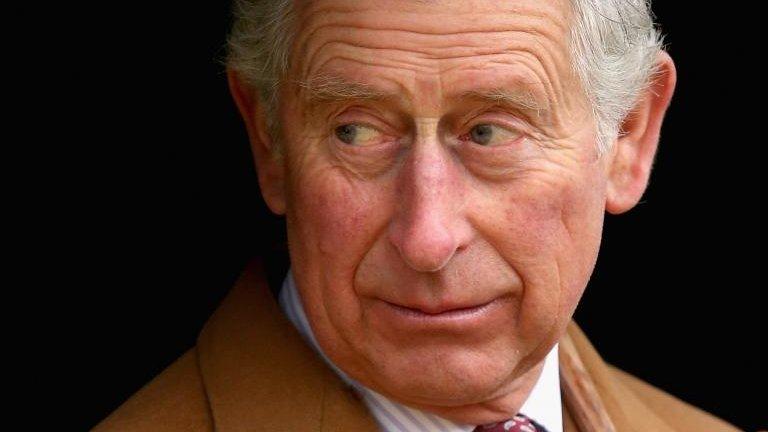Mullaghmore memory: Father remembers lost son, Paul Maxwell, on Royal visit to 1979 IRA bomb scene
- Published
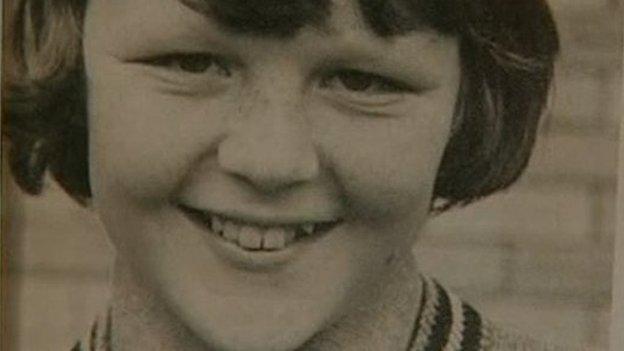
Paul Maxwell was a schoolboy who was working as boatman for Lord Mountbatten
It was a beautiful sunny day in Mullaghmore on 27 August 1979.
John Maxwell remembers the clear blue sky and soaking up the sun's rays outside his cottage in County Sligo.
"The first good day for a long time," he said.
And then the thunder of an explosion tore the perfect sky, shattered the calm and ripped the canvas of John Maxwell's life from top to bottom. Everything changed utterly.
An IRA bomb was detonated on a boat off the coast of Mullaghmore, killing the Queen's cousin, Lord Louis Mountbatten, his grandson, Nicholas Knatchbull, 14, and John Maxwell's son, Paul, 15.
The Dowager Lady Brabourne died the day after the attack.
Nicholas' twin brother, Timmy, and his father and mother Patricia and John Brabourne were seriously injured.
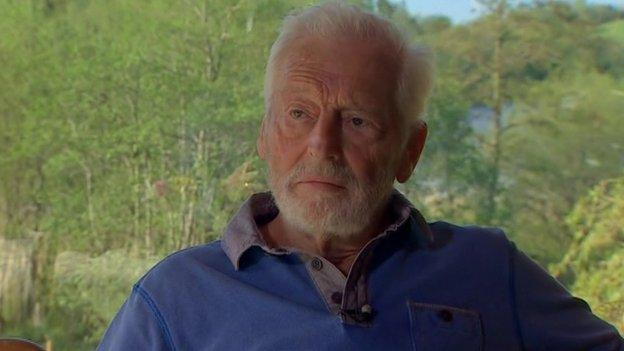
John Maxwell said Prince Charles' visit was a sign of changed times
The boat trip was a regular holiday outing. Lord Mountbatten, 79, and his family traditionally spent time at their castle, Classiebawn, in Sligo, every summer.
The local police kept watch for the one month a year that the family spent there. But Lord Mountbatten's boat was left unguarded at the dock in Mullaghmore where it was moored.
The explosion hurled seven people into the sea.
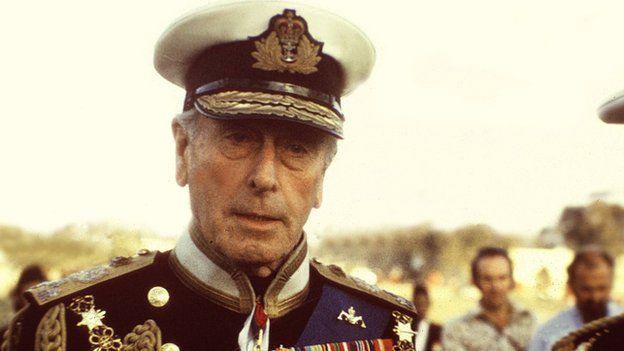
Lord Louis Mountbatten, who was assassinated by the IRA in County Sligo on 27 August 1979
"Paul was a very outgoing wee boy - not wee, he was getting quite big," John said with a smile.
"He was interested in all kinds of sport. He played rugby, he did all kinds of things. He had a very cheery disposition. He got on well with everybody. He loved the sea."
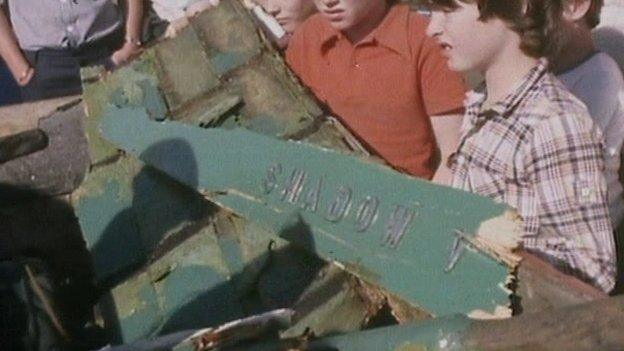
Wreckage of the broken boat bearing its name, Shadow V, was recovered
Getting the summer job as boatman on Lord Mountbatten's boat was a dream come true.
"A local fella, Rodney Lomax, who is sadly now deceased, recommended Paul," he said.
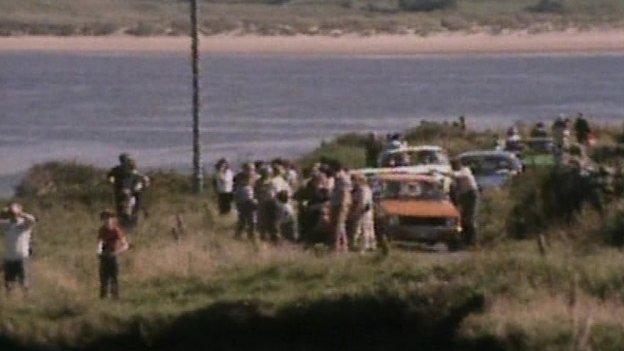
The scene at Mullaghmore on the day of the bombing
"He was always about the place and he was very keen on boats. He went up and was interviewed and got the job.
"He thought it was the greatest thing being out with a man of his renown. He thought it was brilliant. He enjoyed the whole experience and was enjoying it until he lost out on the whole thing."
The explosion on that beautiful day pulled John from the sunspot at the back of his Sligo cottage.
"It was a God almighty explosion and I knew from the direction of the explosion that that would be where the boat was - they took the same boat trip each day," he said.
"I thought it must be the boat. I rushed out, got into the car and drove where I thought the boat would have been.
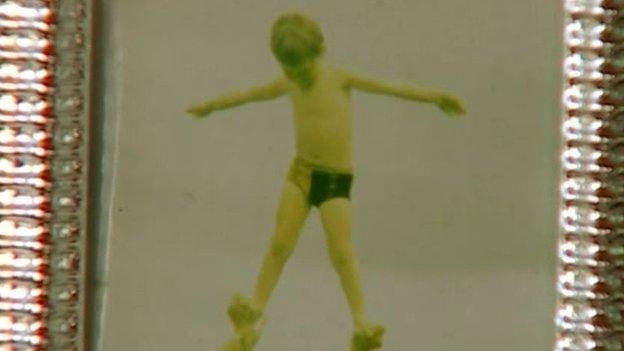
Paul Maxwell was a lively, sporty child
"I stopped and looked over the cliff edge, but all I could see were bits of wood floating out from the centrepiece, the remains of the boat. I knew that nobody could have survived that."
From there, John Maxwell went around to the harbour and met a friend.
"He took me around to see if there was anybody left. There was nothing. The water was still churning up from where the thing had been blown up. It is etched in my memory. I don't like to think about it too much to be honest. It was so sudden and unexpected.
"There was a fair degree of security, every time that the boat - Shadow V - went out. The guards used to go a-pace with it, around the road on the headland. They were on the shore and the boat below them. But it didn't mean they could do anything about it. It is a hard thing to live with."
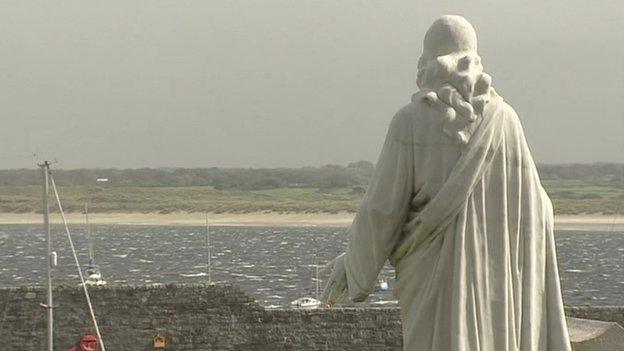
The shoreline at Mullaghmore in County Sligo
And now nearly 36 years later, Prince Charles is to visit Mullaghamore, the place where his beloved great uncle was killed in the IRA bomb.
John Maxwell will be there to meet him. The fact of the Royal visit is a sign of changed times, he said.
"It says a lot about English/Irish relations in that he knows he can do that now," he said.
"It is very positive. It is a big change from the 1970s and 1960s. I like to think we live in a better world. It is possibly a sign that the relationships are really improving and I think they are between the two islands."
He hopes the prince gets a good day to enjoy Mullaghamore at his finest. He still loves the place, even though it is where his son's life was cut short in a cruel way.
"Mullaghmore is a lovely place. I would like to see it getting its just deserts in terms of people arriving and staying. The people in Mullaghmore had nothing to do with this, I am quite convinced. It was, as they say, an outside job," he said.
"There is the scenery and the friendliness of the people. I hope he gets a good day. If the Atlantic storms are coming in he wouldn't see very much."
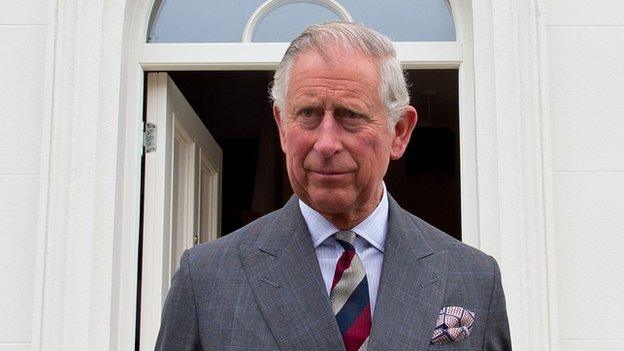
The Prince of Wales will go to the County Sligo community where his great-uncle was murdered in 1979, as part of a four-day trip to Ireland with the theme of peace and reconciliation
John Maxwell has worked to build relationships since that day. He played a major role in starting the first integrated school in Enniskillen.
And he also tried to reach out to the man who was convicted of those three murders, including his son's.
Thomas McMahon was set free under the Good Friday Agreement in 1998.
"I wanted to ask him his motivation and how he felt about it now and how he felt about meeting me," he said.
"Nothing came of it. I thought it would have made things possibly easier for me if he had shown some kind of remorse.
"On the other hand, it could have been worse, he would possibly not have. I am no better off in terms of him. Maybe it was as well I didn't."
What he treasures are the memories of a great son.
"He was interested in all kinds of sport. He played rugby he did all kinds of things. He had a very cheery disposition. He got on well with everybody. He loved the sea and being out on the sea with Lord Mountbatten was fantastic to him,"
And then there are the thoughts of what might have been - the path Paul might have taken and where he might have gone in his life.
"He might have ended up on the sea for all I know... if he had survived," he said.
- Published8 May 2015
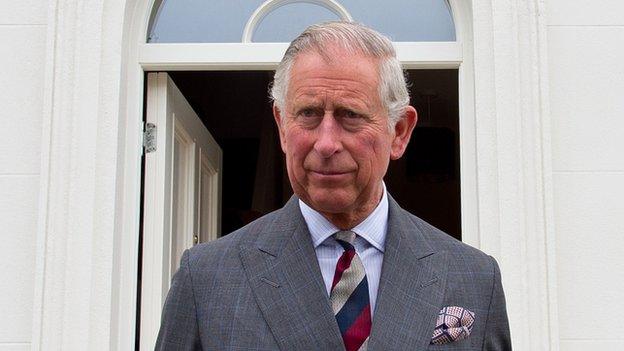
- Published21 April 2015
